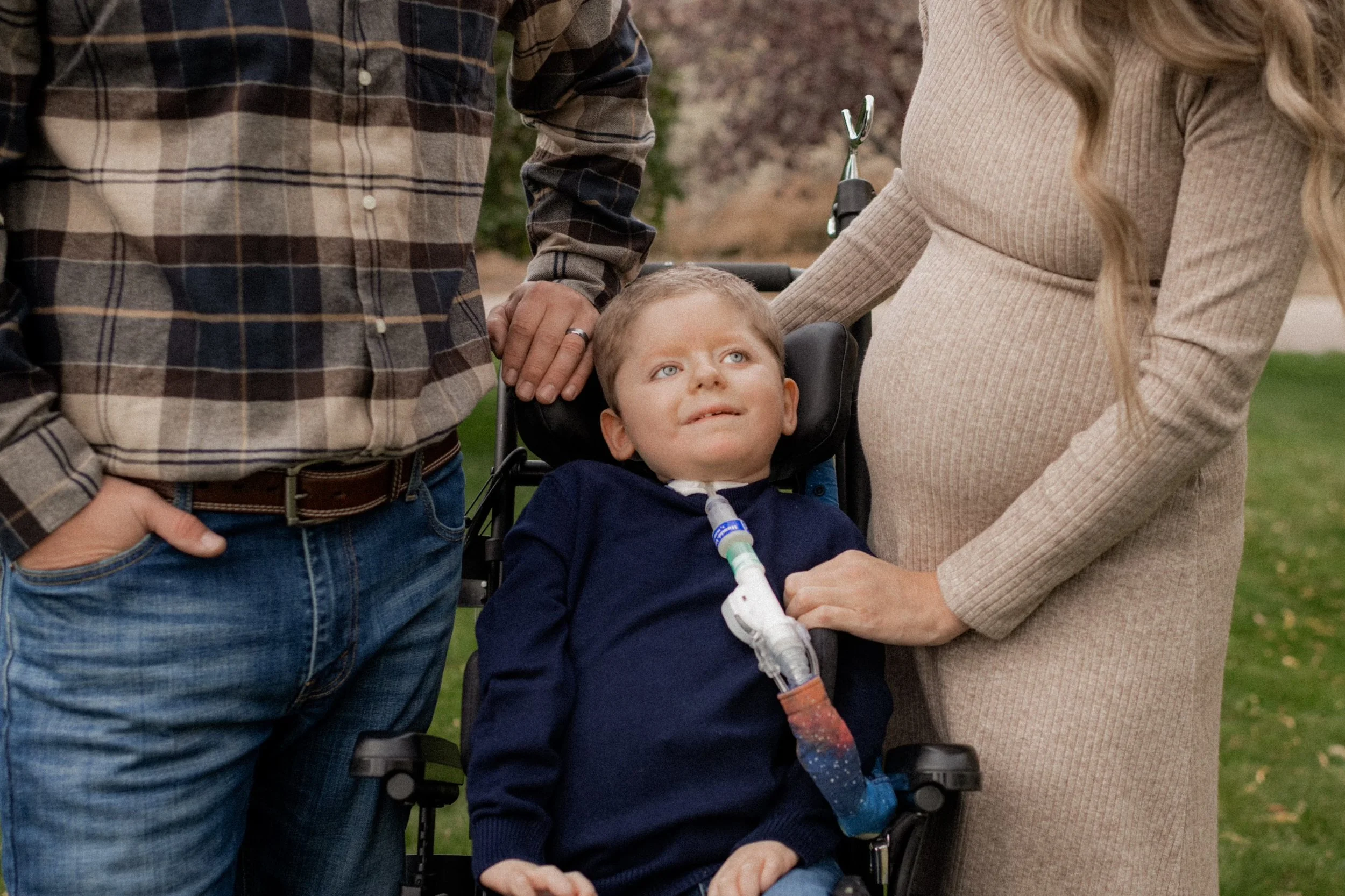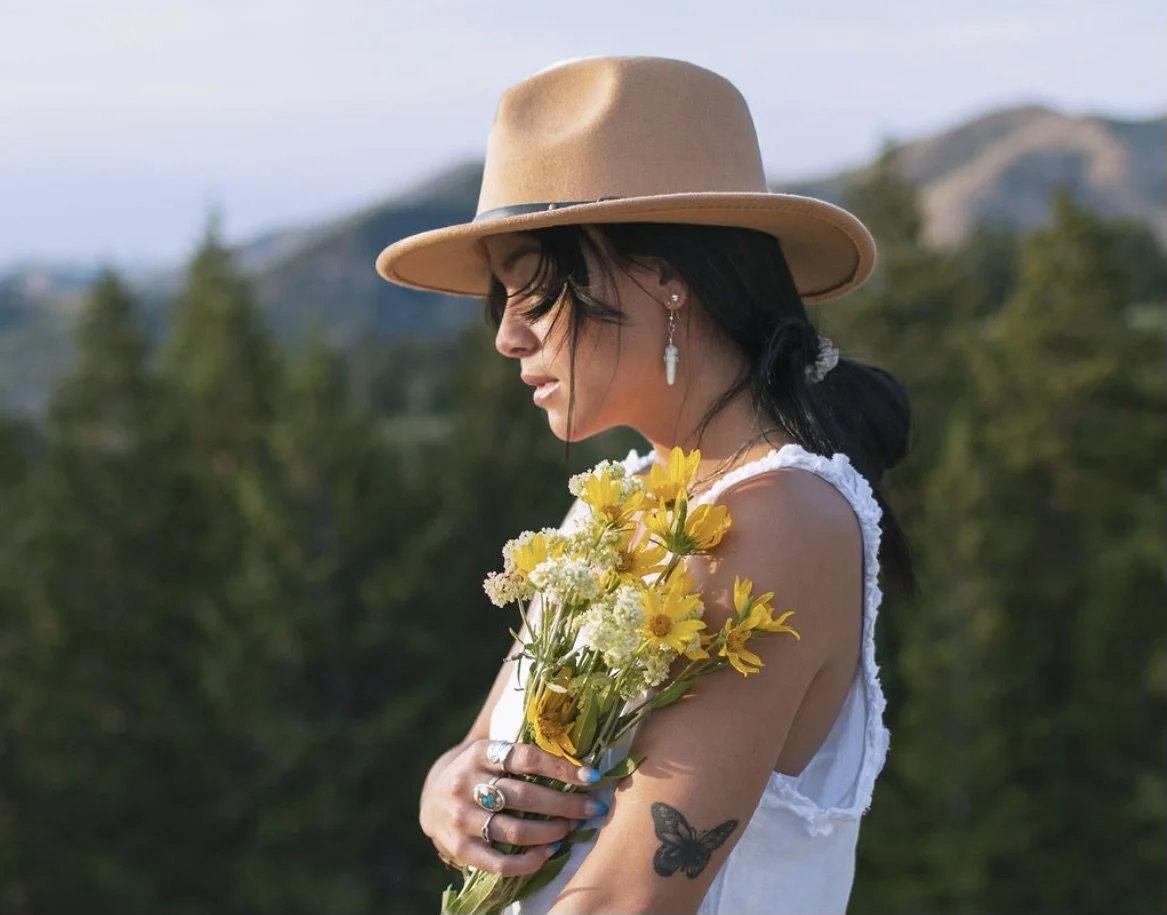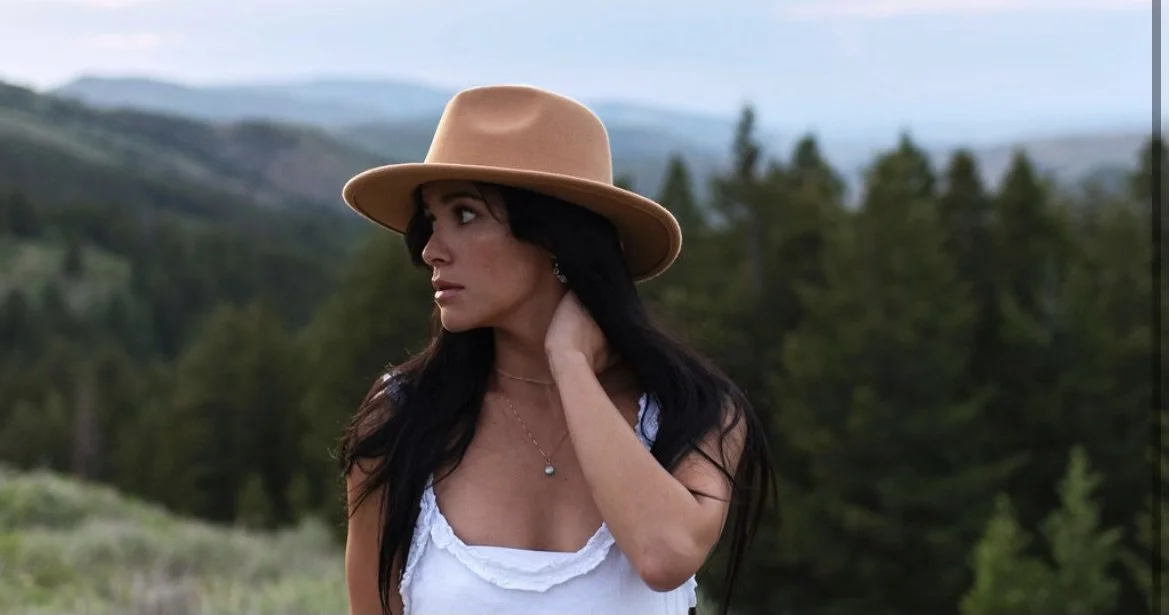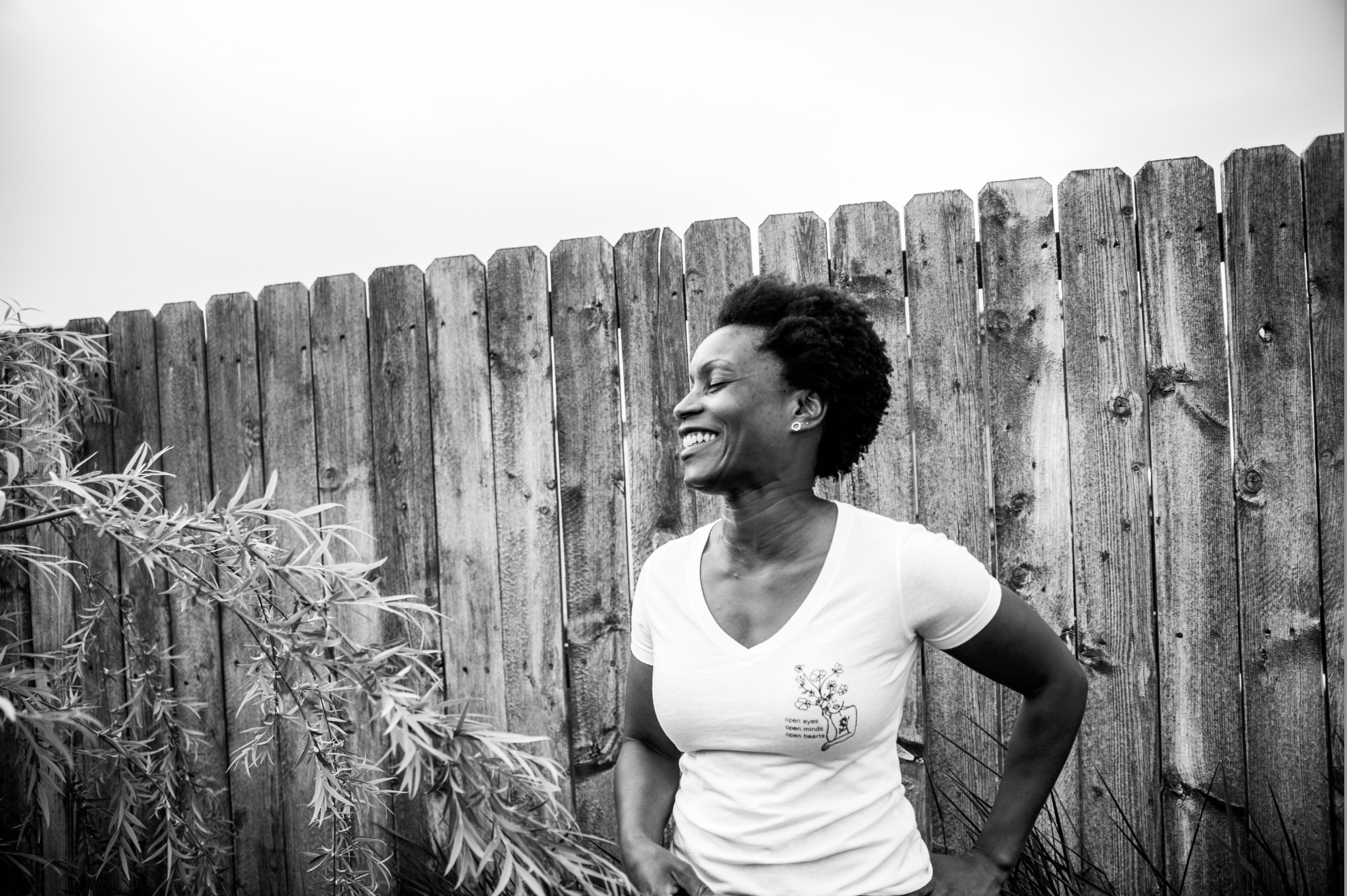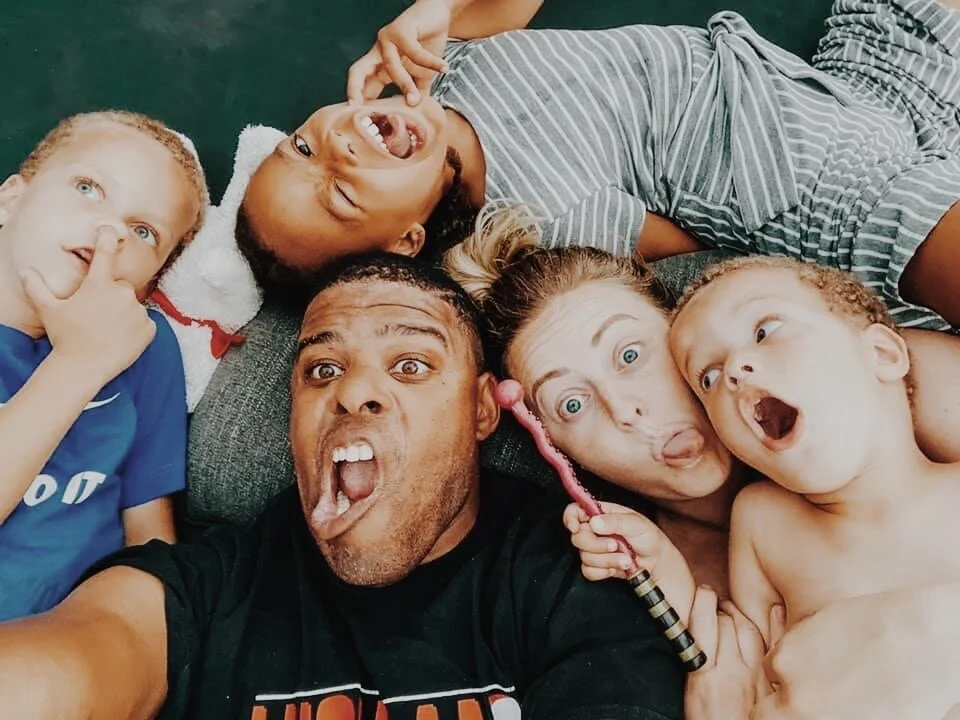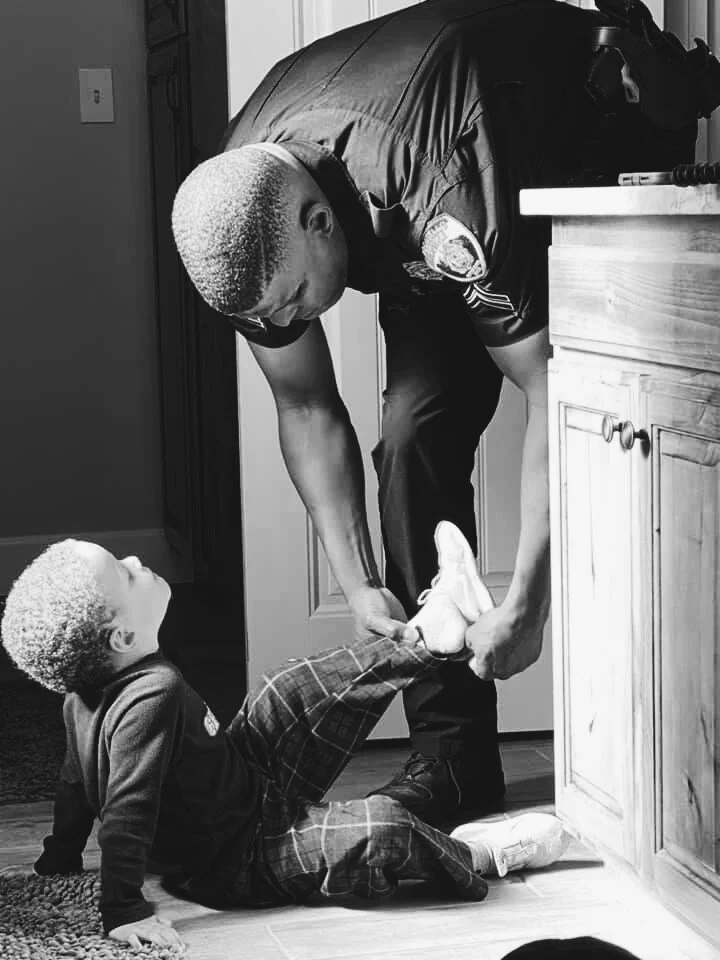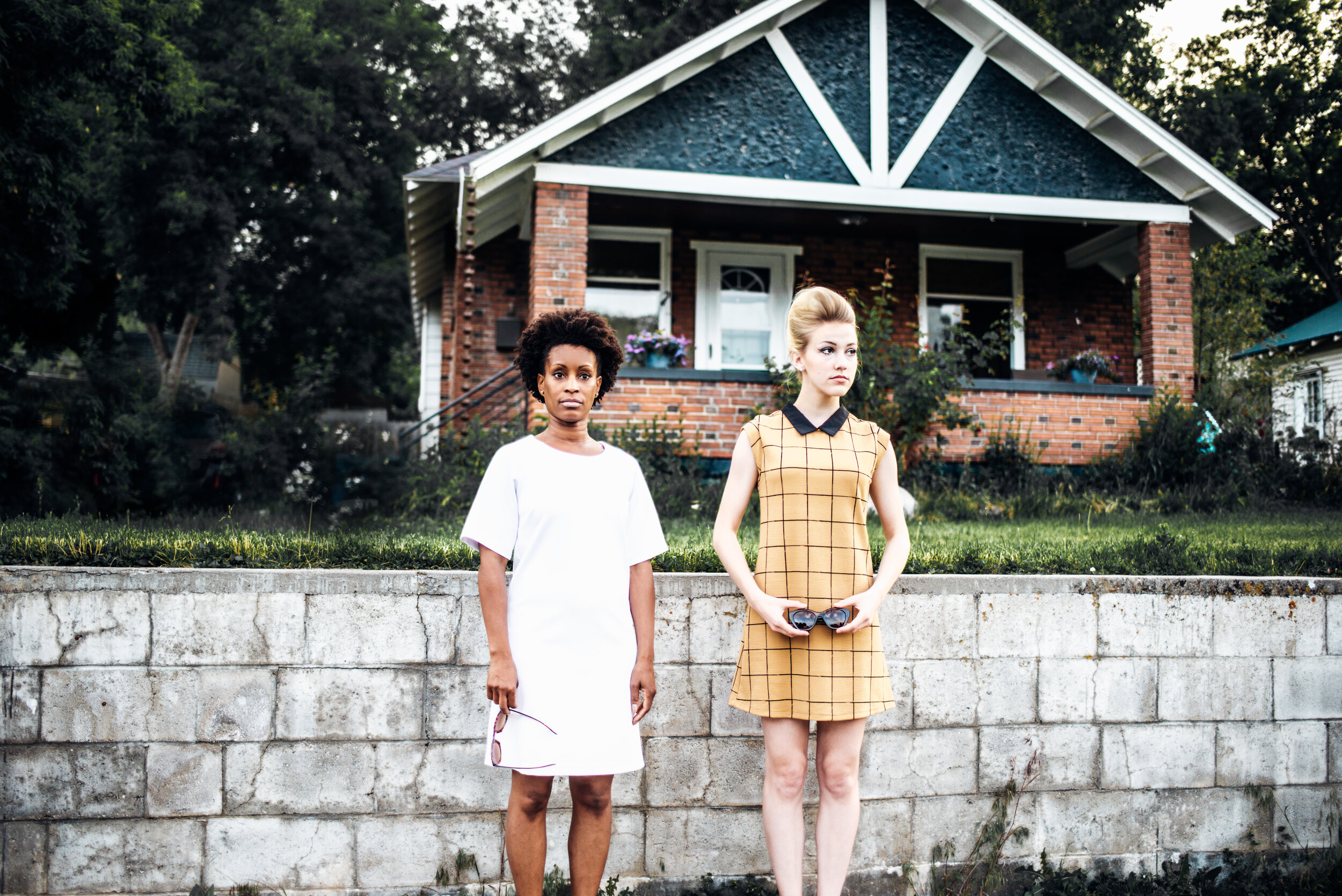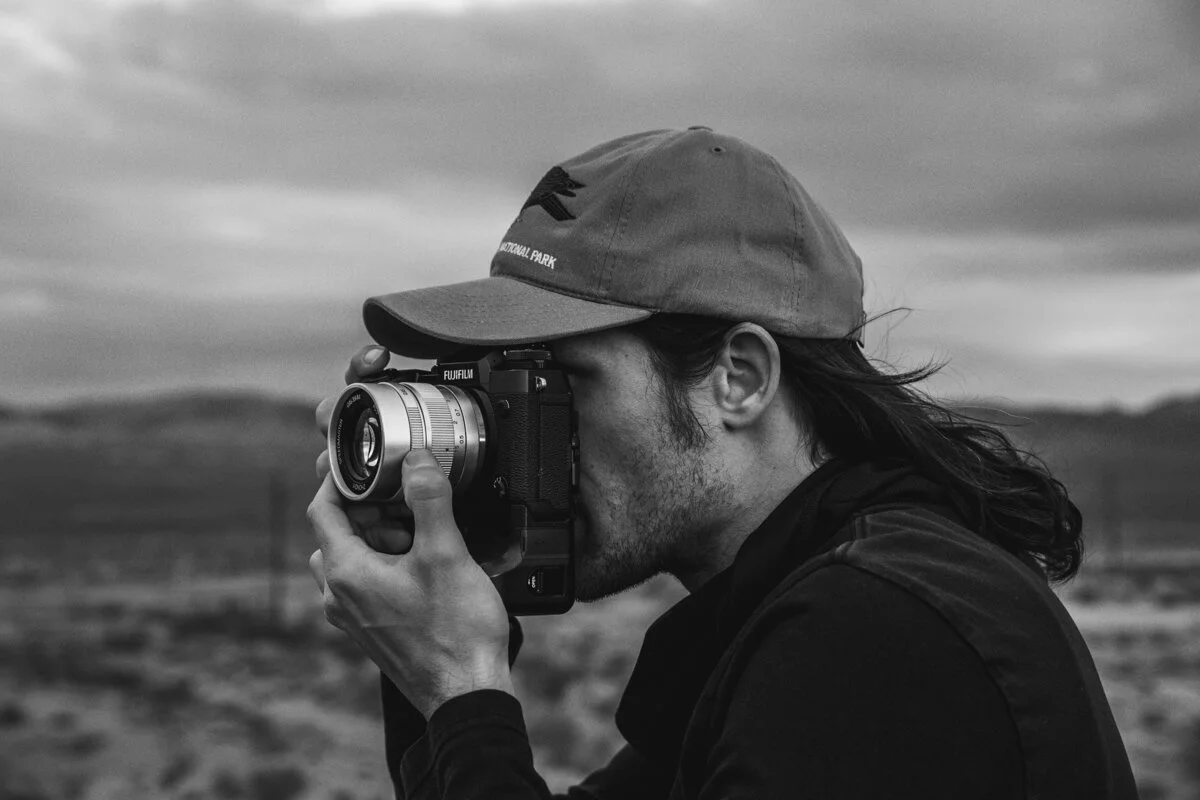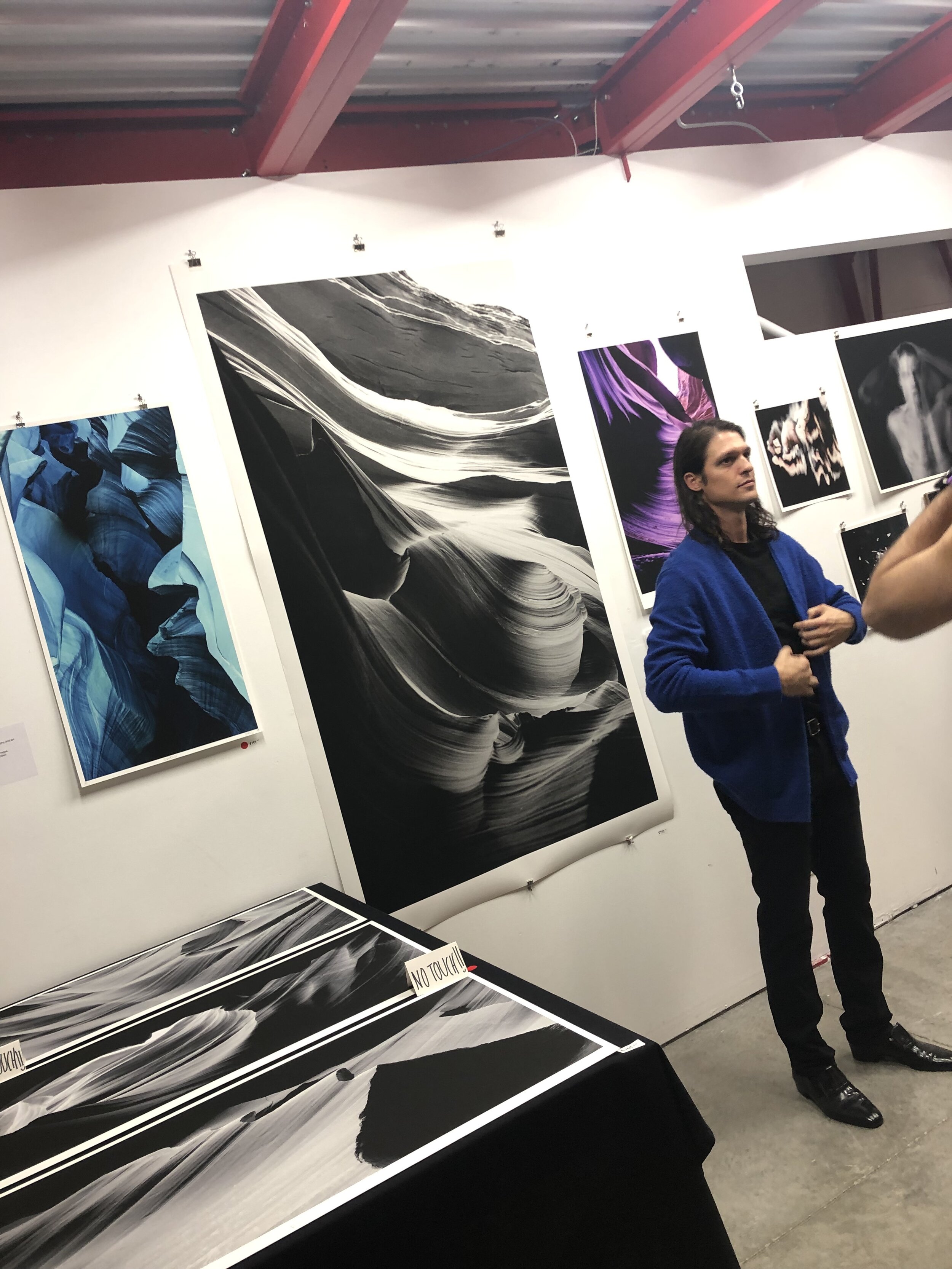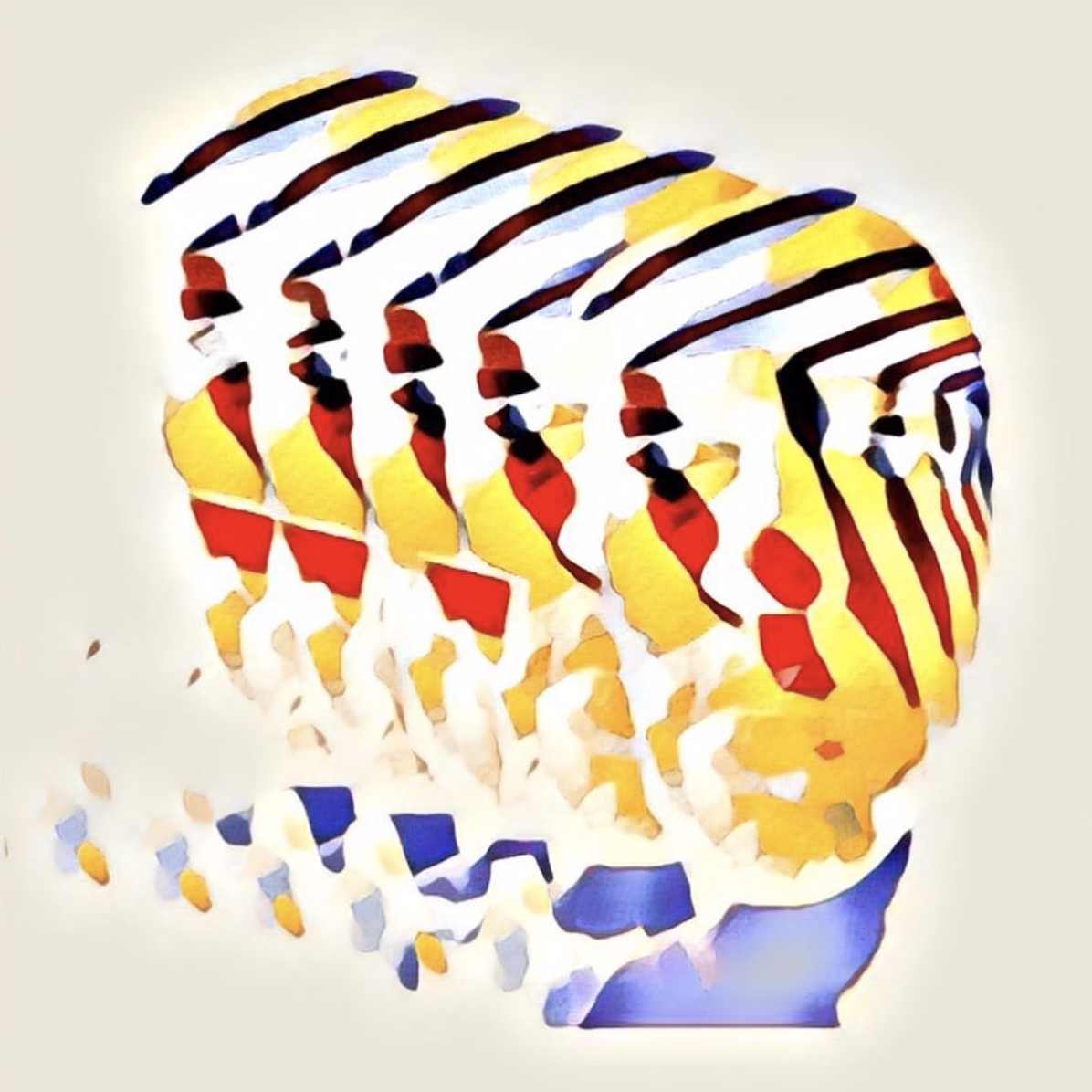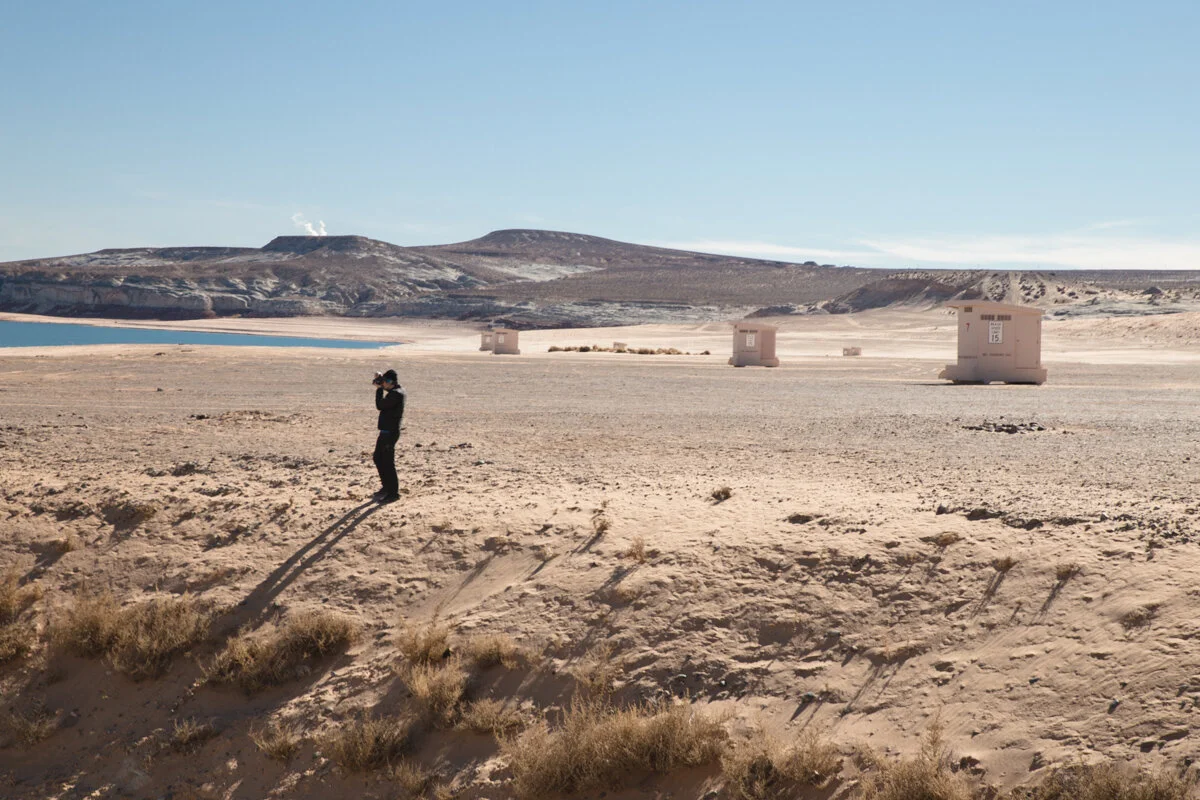Finding Beauty and Perspective in Life's Challenges with Melissa Curtis
This is a special episode because it features a special person: my close friend Melissa Curtis, who shares her experience having a medically-complex child. She tells us the progression from first receiving the unexpected news, to adapting and navigating her new reality. She discusses how she maintains perspective, and suggests things for us all to remember, no matter our situation. Melissa has a way of navigating life with such poise, grace, awareness, and resolve. Get ready to be inspired.
Connect with me on Facebook and Instagram @the_nativist
Visit https://clearstem.com/?ref=eubxjtws and use code WHITNEYRICHARDS for 15% off!
xx,
w
Loss: How to Frame It and What [Not] to Do and Say
Loss. The bad news? Everyone experiences it. The good news? Everyone experiences it.
It’s a universal thread, tying is all together. It’s inevitable, though our individual experiences of it aren’t. We all experience loss, albeit it in different ways, to different degrees, at different times, in different ways.
Loss doesn’t always mean a physical death; sometimes it’s the loss of a job, loss of an identity, loss of a friendship, loss of a lifestyle, loss of a perspective.
Whether it’s your loss or another’s, it may feel hard to know what to do and say. You may feel compelled to try to “fix it,” or to positively re-frame it so as to expedite healing and eliminate wallowing.
In this incredibly thoughtful (and hopefully illuminating and helpful) episode, my friend Sydnie Hammon, a graduate student in forensic psychology, returns to share her own experience with loss, and what has (and hasn’t!) helped her. Our candid and personal discussion is steeped in psychology and personal experience.
We offer concrete, specific guidance on what to say, how to say it, what to do, and how to do it, for when you encounter loss directly and indirectly. We also suggest different ways to frame and perceive loss.
Want to know how to show up better for yourself and others? Then this is exactly the right episode for you.
Thank you for caring enough to partake. This matters.
Love you.
Find Sydnie on Instagram @sydniiieee
Find me on Facebook and Instagram @the_nativist
The books we reference in the episode:
The Body Keeps the Score: Brain, Mind, and Body in the Healing of Trauma by Bessel van der Kolk
Bittersweet: How Sorrow and Longing Make Us Whole by Susan Cain
Option B: Facing Adversity, Building Resilience, and Finding Joy by Sheryl Sandberg and Adam Grant
Discrimination Series Part 3: Respect
In this third installment of my series on discrimination, I sit down with one of my best amigas, Cheli Brubaker.
I’ve always admired Cheli’s openness and acceptance of others. To know her is to adore her. Cheli is a first-generation American of West Indian descent, as her parents migrated here from the Caribbean. Cheli shares her experience living in predominantly white communities (particularly sheltered, conservative communities) as a youth and as part of a biracial couple.
Though she and I know each other well, I was intrigued to hear her views on race relations. She and I discuss using labels, taking accountability, commanding respect, reciprocating support, and reserving judgment.
It’s a thought provoker.
You can find Cheli on Instagram @chelitb or on Facebook under Cheli Brubaker
Cheli sporting her Nativist tee: open eyes, open minds, open hearts
Discrimination Series Part 2: Listening and Learning
In the second episode exploring discrimination, I talk with Akilah Lacey, a police officer who offers a unique and valuable perspective on his experiences and outlook on discrimination as a law enforcement officer and member of a biracial marriage in a predominantly white, conservative community.
Akilah describes what it was like transitioning from Watts to Orange County to Pocatello, Idaho, and how he bridges the gap while straddling two worlds in this current charged climate. We discuss the importance of awareness, perspective, open mindedness, communication, and empathy. We highlight the importance of listening to learn and understand, and the necessity of taking accountability for our actions.
Discrimination Series Part 1:
It’s generally accepted that discrimination exists. We may disagree on on how/where/when/why discrimination manifests, but people for the most part acknowledge it’s there. Many are recently awakening to how deep and prevalent it is.
It is not enough to be non-discriminatory. We must be anti-discriminatory.
I for one know I could step it up. Yes, I’m acutely aware - and have been for essentially my whole life - of pervasive and persistent racism and discrimination. Yes, I continually research and educate myself on the topic. Seek perspectives. Self reflect and ask myself hard questions. Consider the micro and macro pictures/factors. Express outrage and disgust when talking to others. But if I’m honest with myself…that’s the bare minimum. I can - and will - do more. This is me trying to pull my weight.
It’s not enough to be privately anti-racist/sexist/etc. Clearly, that hasn’t moved the needle enough. We must be publicly and actively so. If you’re unsure of how to go about that, you’re in the right place. Come with me as we dive into this, by asking questions, considering views, sharing resources, and assessing possibilities. Follow along on this account/my blog/podcast. Human power. ✊✊🏻✊🏼✊🏽✊🏾✊🏿
Self Love
This is another episode per request. Though it’s a topic that’s often discussed…it’s still just as relevant and necessary.
And let’s be straight: Self love isn’t always about massages and candlelit baths. Sometimes it’s about tough love. Digging in and doing shadow work. Calling yourself on your bullshit. Identifying and eliminating your toxic habits. As with everything in life, balance is crucial and boundaries aren’t just to apply to other people. They’re not just interpersonal - they should be intrapersonal as well.
I talk about how self love looks like:
Recognizing and releasing toxicity - yours and others’
Connecting to yourself
Honoring your basic needs: emotional, physical, mental
Communicating directly and authentically, and letting others do the same (without overanalyzing and assuming people hate you/are mad at you)
Apologizing only for things within your control
Setting boundaries
Asking for what you want/need
Daring to say yes, and daring to say no
Feeling and navigating your emotions
Releasing what you can’t control, and prioritizing what you can
Treating yourself and others with grace and kindness
I hope you find value in this. And I hope you love yourself. Because I sure as hell do.
-w-
Politics Schmolitics
Per request, this episode dives into politics.
I have a degree in political science and international relations, with a minor in psychology, so this is definitely an area of interest. I discuss the roles of politics and tribalism in our lives, how certain leaders can be so powerful, how to educate yourself on issues effectively and responsibly, why international relations affect our daily lives, why Americans should stay sympathetic and humble, and why open-mindedness is essential. Plus...a whole lot of other stuff. I keep it clean, I keep it neutral...but hopefully, I also keep it thought provoking.
Below, you’ll find my outline I used for this episode - in case you feel like getting wild and really digging in (or using for past/future reference!)
Disclaimer: This is not going to be partisan. For my job, I must stay neutral. As you may have noticed, I stay neutral on social media (though sometimes this is tough - especially on my Hot Topic Thursday questions!).
Lizard brain
Fear of survival
Self preservation kicks in
Law of scarcity
Identify common enemy
If leaders can activate your lizard brain, then game over: they can control you
Eg. Hitler
Try to not let this happen to you!
Tribalism
In vs. out crowd
Humans are social creatures
Back in the day, our survival depended on fitting in with the tribe. Strength in numbers. We couldn’t survive without it. Now, it’s still important, especially for mental health.
Associating with a tribe gives us a sense of identity and purpose. Provides framework for our life. Makes us feel like we belong
Judging others makes us feel superior (reference judgment podcast). Gives us a hit of feel-good emotions. Makes us feel smarter than, more pious than, etc.
We love “gotcha” moments:
I’m personally politically independent and issue based. I don’t affiliate with a political party.
I think it can get dangerous when you have blind, unconditional loyalty to groups/human constructs, like a political party
No matter what, the GOP is always right.
Ride or die for the Democrats
If you think about it, that defies reason. That’s just giving away your power. Your agency.
Both sides are guilty. Just like there are bad eggs in every profession, or organization, or religion. We’re human. We’re fallible.
Without getting too into it, I’ll just say that mixing religion and rule can be a slippery slope, no matter what kind of religion and what kind of government it is: democracy and Christianity, democracy and Judaism, monarchy and Islam. Not that certain mixtures can never work: it can be closed-minded to think so (and I’m a FIRM believer in open-mindedness, both in preach and practice). Let’s not be so quick to denounce another way of doing things. This goes for countries and people.
I also strongly believe in freedom. As you may have heard me say, a main mantra of mine is to live and let live, unless your lifestyle harms another. There are many different kinds of religions and anointing one religion as THE religion by yoking it to the official rule of law impede others’ freedom to practice their own. A “holier-than-thou” attitude - particularly in politics - can be detrimental, counterproductive, and downright damaging in multiple ways. If there is an official religion, let’s make it love. Boom. On to the next topic.
Let’s talk economy
I’m no economist by any means, but I’ve read a few books and tried to educate myself somewhat.
Some of the books I’ve read:
Keeping At It: The Quest for Sound Money and Good Government by Paul Volcker. Volcker is the former chairman of the Board of Governors of the Federal Reserve System, and the former Undersecretary of the Treasury for Monetary Affairs and president of the Federal Reserve Bank of New York. Volcker chronicles his career, during which he confronted multiple financial crises and issues. He extols the virtue of stable prices, sound finance, and good government. It wasn’t as dry of a read as you’d expect.
Capitalism in America: A History by Alan Greenspan: From the legendary former Fed Chairman and the acclaimed Economist writer and historian, the full, epic story of America's evolution from simple colonies to the world’s most powerful engine of wealth and innovation. Greenspan explores why the economy surges, changes, stalls, etc. He distills a lifetime of grappling with these questions about capitalism, etc, into a thorough and profound book outlining the decisive drivers of the US economy over the course of its history.
riveting?! Okay, okay, fine. I get it. \
What I would love people to understand: The economy is multi-dimensional and affected by a variety of factors, most of them international factors.
And the economy is not the only way to measure how well a leader is doing
I don’t expect everyone to become international relations experts, but I would LOVE for there to just be more awareness of how important IR are, and the bearing they have on everything else (like the economy!). Part of this is because raising one’s awareness of international relations also heightens your consideration of people in other countries and cultures. There’s more to the world than just your local economy, or even national economy. Let’s expand our consciousness beyond how well our personal investments/bank accounts/jobs are doing
Ex. of how IR can affect us:
It affects how much you pay at the pump: OPEC arguing over oil prices affects the price of gas
It affects the price of goods: the creation/dissolution of trade deals or tariffs with, say, China, will affect the price of imports/exports. This affects supply/demand in the world, and trickles down to your wallet.
It affects where you can travel (and where it’s safe to travel): Allying with or angering certain countries affects whether or not you need a passport/visa, or whether or not you’re even welcome in that country at all. There are also ripple effects in IR: our alliance/dismissal with a certain country can spark fighting in that country or elsewhere, making it unsafe to travel there. Or less directly felt by us (but not less important), it can enable bad people to do bad things.
And an unfortunate truth: America isn’t invincible. We’re not entitled or even guaranteed to win. We must safeguard our liberties. Other great nations have fallen - so can ours. Let’s not get cocky. We must stay humble and considerate. We mess up (we’ve had some ROYAL screw ups in the past - Native Americans (stealing land, smallpox blankets), meddling in affairs worldwide for our own gain, etc). Most of those past indiscretions have lingering effects playing out today, and are reflected in the world’s current state of affairs. We’ve disrupted entire cultures and countries. Yes, other countries and other superpowers have, too. Yes, that doesn’t excuse current terrorism and violence. Yes, it’s not productive to constantly dwell on the past and constantly be held accountable for our predecessors’ mistakes. However, 1. We still mess up (we’re fallible humans, remember?) and 2. I think it’s key for us to at least acknowledge our missteps and how they affect current events. Be humble. Think of someone who did you dirty in the past. Maybe they lied to you, or stole your bike, or didn’t invite you to a big party. Doesn’t feel good, right? Now let’s step that up: Imagine they murdered your family, stole your land, forced you to submit and follow their rules (punished you if you didn’t), and then didn’t apologize for decades later - after the damage had been done? And then downplayed it (or outright DENIED it and told you to get over it already). See how that kind of grudge could stick with a person? So let’s be a little kinder to everyone.
Okay, back to the importance of international relations (though what I just said does directly apply).
Current international relations are a result of past international relations. People who currently despise America generally don’t hate us simply because they’re mean, bad people. They loathe us for a reason: often, for those aforementioned past indiscretions. We did them dirty.
Often, pride is mixed in with that. It’s not a good feeling to be the world’s epicenter of culture, mathematics, literature, etc - and then suddenly find yourself a third-word country. Ouch. So let’s be compassionate.
And sometimes people just hate Americans because they’ve had too much haterade - and we have to remember, that’s their prerogative. It’s unfair and elitist to think American humans are better than other humans, and Americans are the only ones entitled to life, liberty, and the pursuit of happiness.
Also important to remember: all humans are capable of acting a fool, particularly when tangled up in emotions: fear, pride, insecurity, etc. Remember what i said about the lizard brain, instinct for survival, and scarcity mindset? Unfortunately, I see that played out daily in American politics. We’re all in this together, muddling through the best we can.
Thank you all!
Thank you all!
McCool Story, Bro
My latest guest is one [mc]cool cat.
I first met Tyler McCool a few years ago while shooting a wedding with my sister in gorgeous upstate New York. He was the videographer and was serving major good vibes: fun, friendly, focused, and…chill (for once in my life, I ran out of F words!).
We’ve stayed connected through Instagram since then, and Tyler’s account is one of my faves. He’s a fellow creative who knows how to have a good time. His talent runs wide and deep - just like our conversation. When he’s not making me laugh, he’s making me think: with his art, his poetry, his funny responses to my Insta stories…
I hit him with some questions, and he delivered. We talk creating, living, loving, and evolving.
Enjoy.
You can find Tyler online (www.mccoolmedia.com) or on Instagram (@mccooltyler)
A Beautiful Life
In this gorgeous episode, I talk to my stunning amiga Lacey Frost.
Lacey sparkles from the inside out and is like pure sunshine for the soul. She reminds me of a Disney princess: show-stopping beauty with a heart of gold.
Lacey bravely shares how she maintains an elevated perspective throughout her continuing fertility journey, and what life lessons she’s learned along the way.
She also tells us how she helps others find beauty through her success as a makeup artist and Maskcara representative. She is exceptional at seeing and acknowledging beauty in others.
She’s a true inspiration.
You can find Lacey on Instagram @lacefrost (she does fabulous makeup tutorials)!

